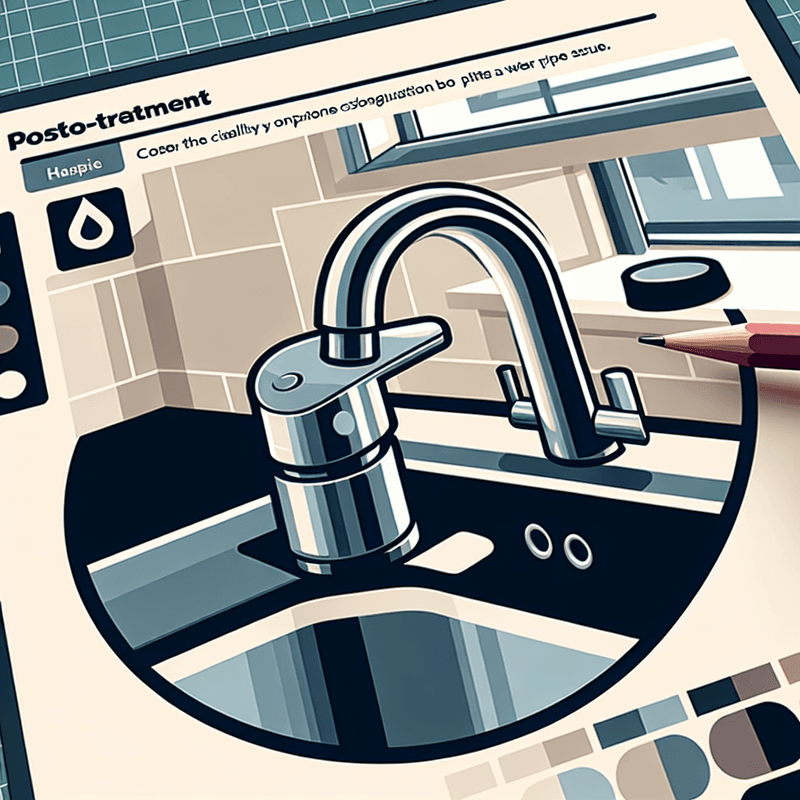When you notice water pooling around the base of your bathroom sink, it can cause an immediate sense of alarm. Leaking at the base of a sink is not only a nuisance but can also lead to larger structural and health issues if not addressed promptly, like water damage and mould growth. In this post, we’ll walk through the common causes of this problem, how you can identify and fix minor leaks yourself, and when it might be time to call in a professional.
Understanding the Causes of Base Leaks
The reasons behind a leak can vary, and pinpointing the exact cause is crucial for a fixed resolution. Here are a few possibilities:
1. Worn Sealant: Over time, the sealant or plumber’s putty that creates a watertight seal between your sink and the countertop can deteriorate. When this happens, water begins to escape.
2. Loose Water Supply Connections: The connections that supply hot and cold water to your faucet can become loose, causing leakage that appears at the sink base.
3. Faulty Pipes: Cracks or degradation in the u-bend or the pipes under the sink can be the culprit.
4. Damaged Sink Rim: On some occasions, the sink itself might have damages or cracks around its rim which are not immediately visible but can allow water to seep through.
Spotting the Problem
To effectively tackle a leak, first, you need to establish where it’s coming from. This involves a bit of detective work:
- Dry the area around your sink thoroughly with a towel.
- Place a dry piece of tissue paper or paper towel around the base of the sink and beneath the piping.
- Turn on the tap and observe where water appears first on the paper. This will help you trace the source.
Fixing Minor Leaks Yourself
Once the leak’s source is identified, consider if it’s a fix you’re comfortable undertaking:
- Re-sealing the Sink: If the leak is due to old sealant, carefully remove the old sealant with a scraper, clean the area, and apply fresh plumber’s putty or a sealant, ensuring it’s suitable for bathroom use.
- Tightening Connections: Use a wrench to gently tighten the connections to the water supply lines. It’s crucial not to over-tighten, as this can damage the fittings.
- Replacing Damaged Parts: If a visible crack or damage in the u-bend or pipes is discovered, replacing these parts can often be a manageable DIY task. Ensure you take the old part to the store to match the size and type correctly.
When to Call a Professional
If after these checks and minor repairs the problem persists, it might indicate a more complex issue, or the requirement for specialist tools or skills. Here’s when to call in a professional:
- If the source of the leak is unclear after your initial checks.
- If the leak is due to a crack in the sink body itself.
- If you are not comfortable performing any suggested repairs yourself.
- If the plumbing involves soldering or replacing large sections of pipe.
Preventing Future Leaks
To avoid future emergencies and the hassle of unexpected repairs, routine maintenance is key:
- Regularly check under the sink for signs of moisture or small leaks.
- Every few months, check and tighten the plumbing connections.
- Once a year, replace sealants or any wear-and-tear parts like washers in the u-bend.
- Consider upgrading very old piping or components which are more prone to failure.
Conclusion
Dealing with a leaking bathroom sink at the base often requires a methodical approach to identify and rectify the source of the water escape. While many minor issues can be fixed at home with a few tools and a bit of patience, don’t hesitate to call a professional if the problem is beyond your comfort zone or if a straightforward solution isn’t apparent. Regular maintenance can help prevent leaks from cropping up and give you peace of mind. If you've performed a fix, keep an eye on the area over the next few weeks to ensure the problem is fully resolved and doesn't recur.





